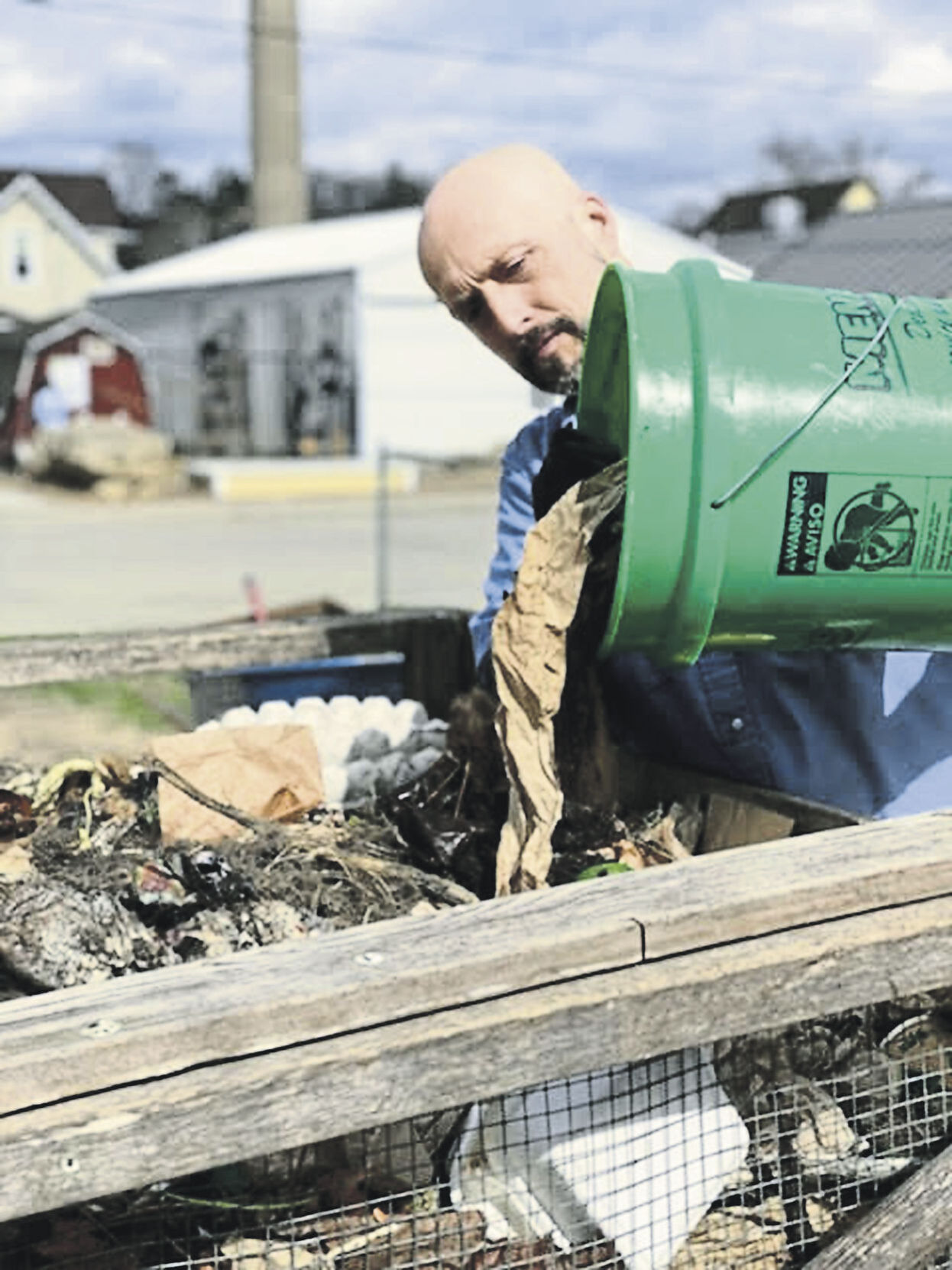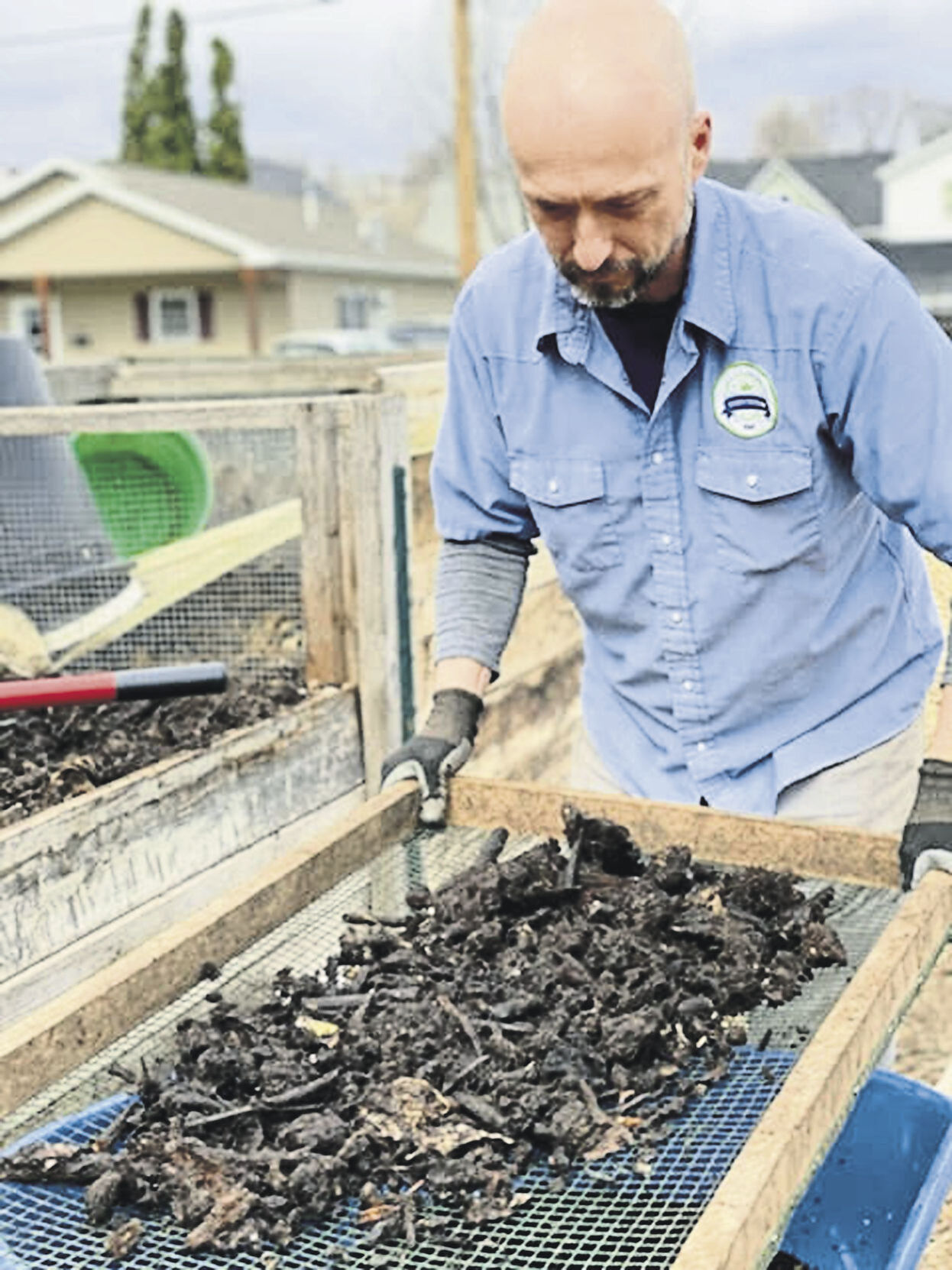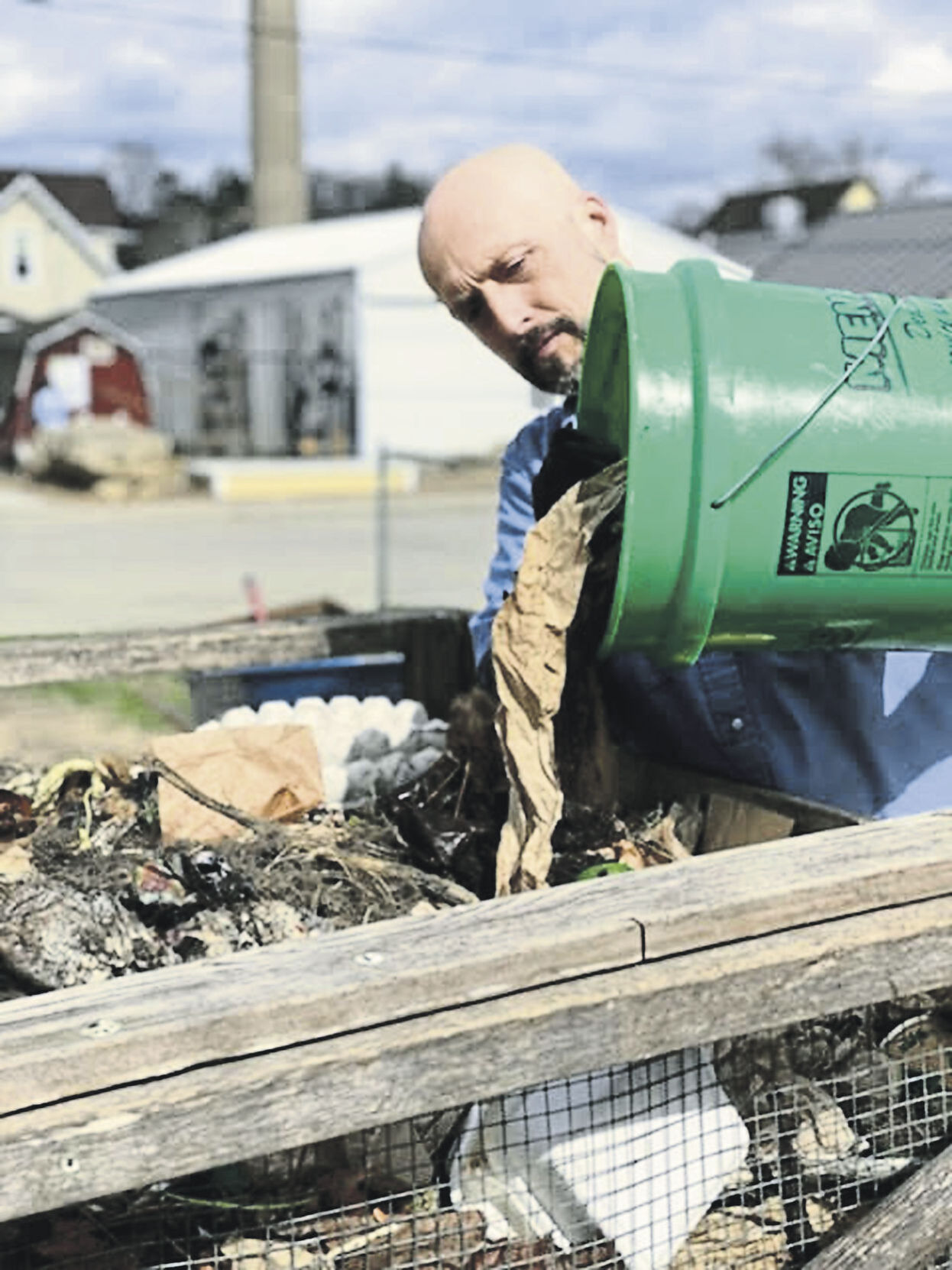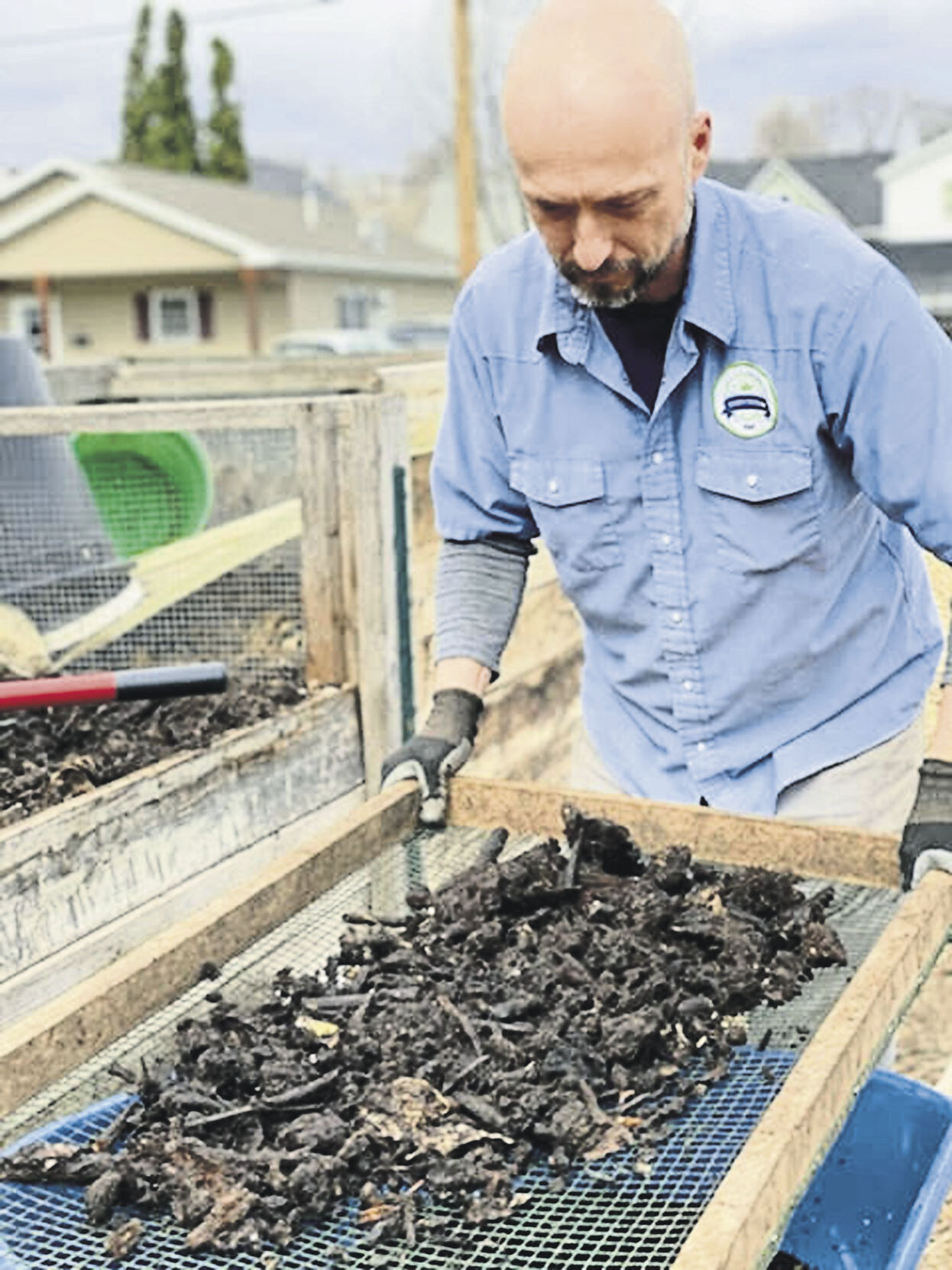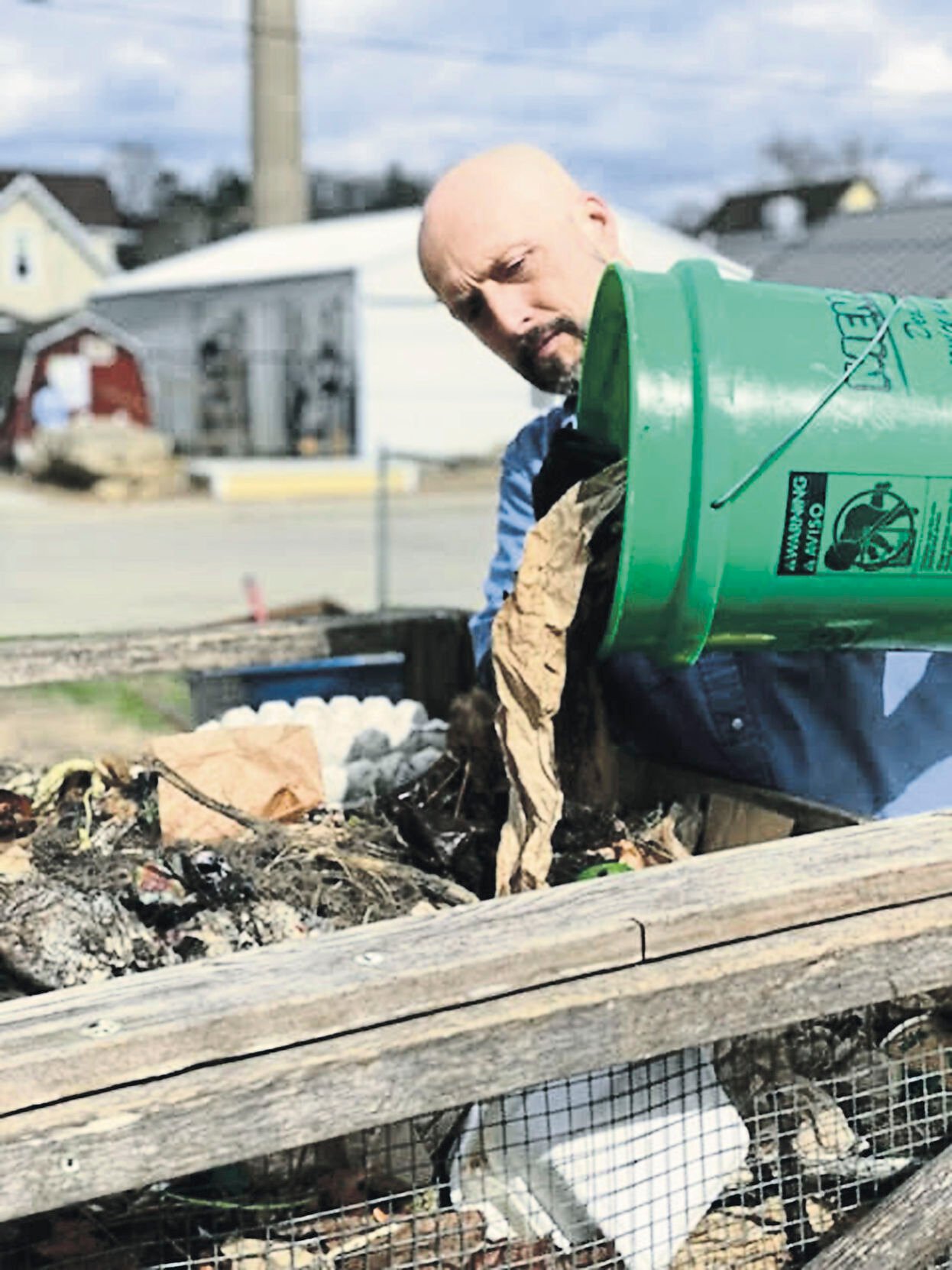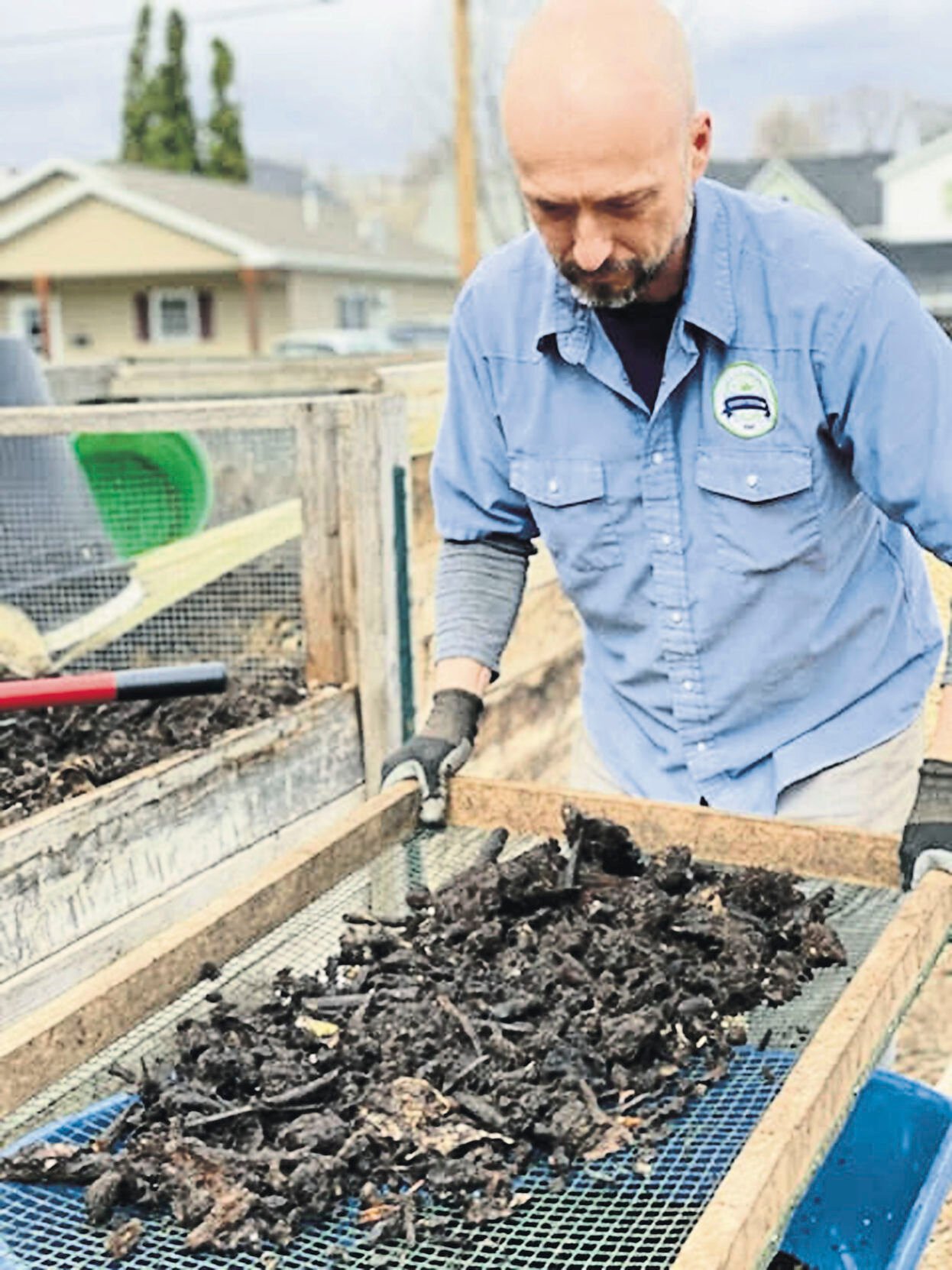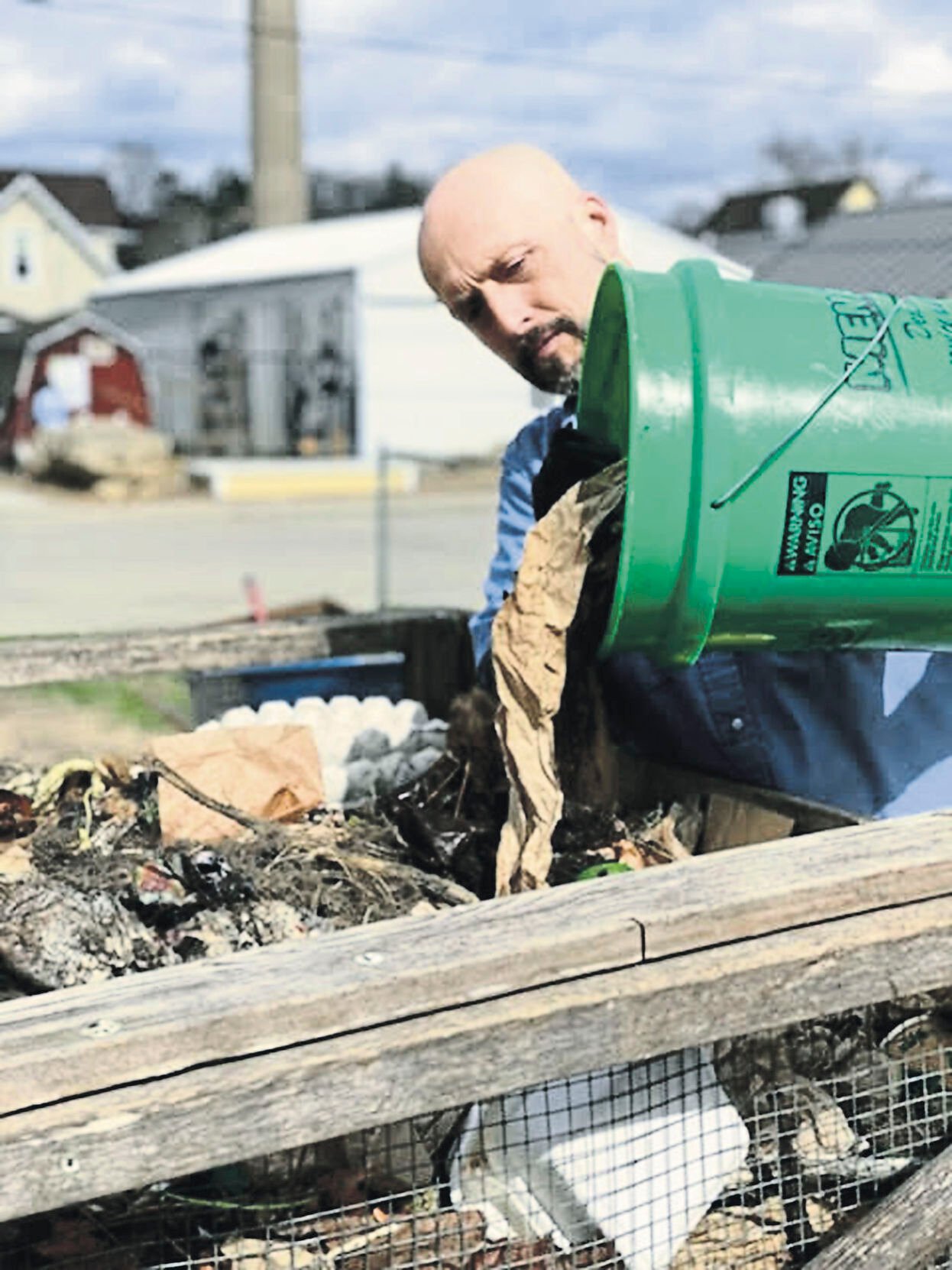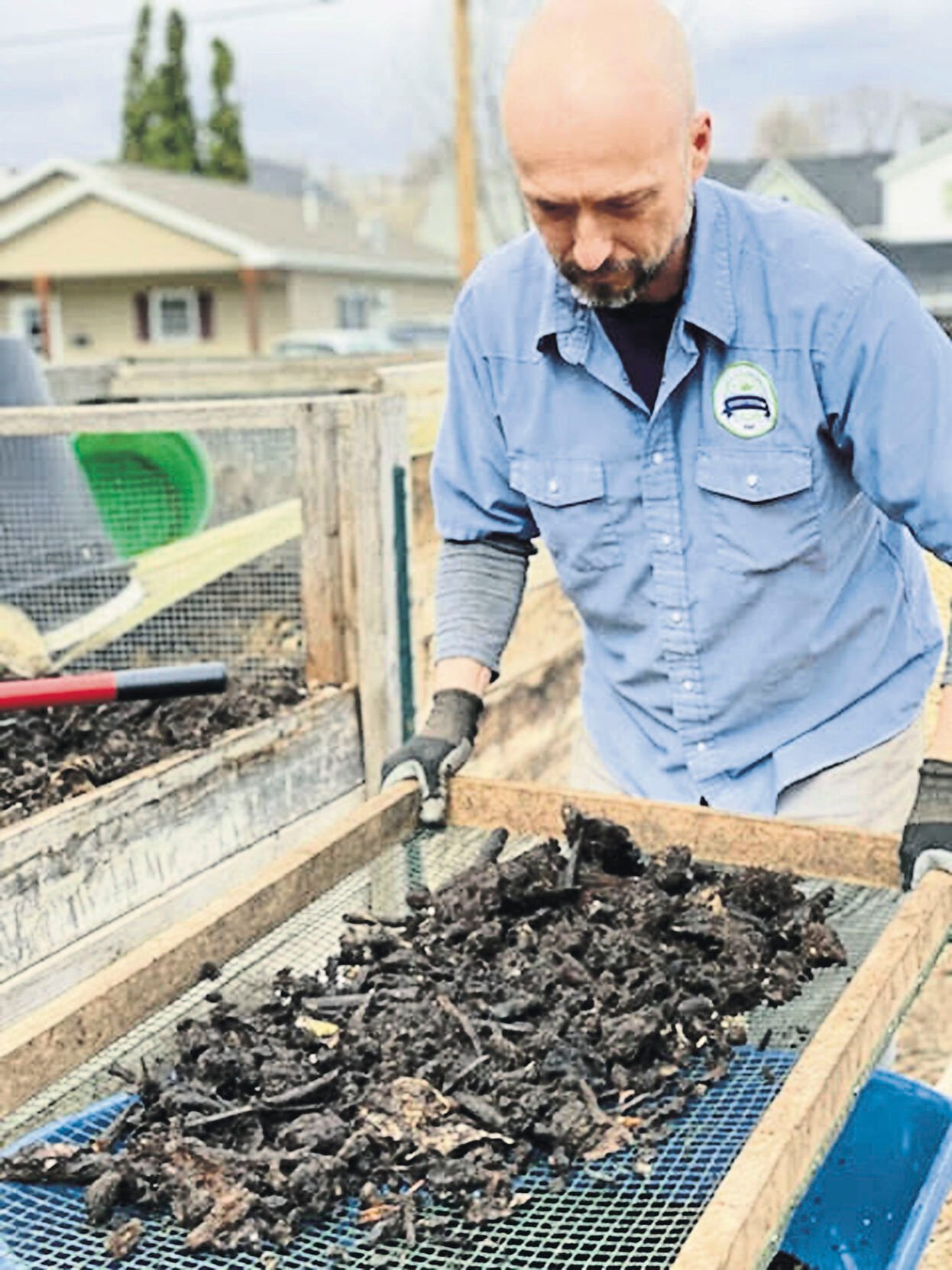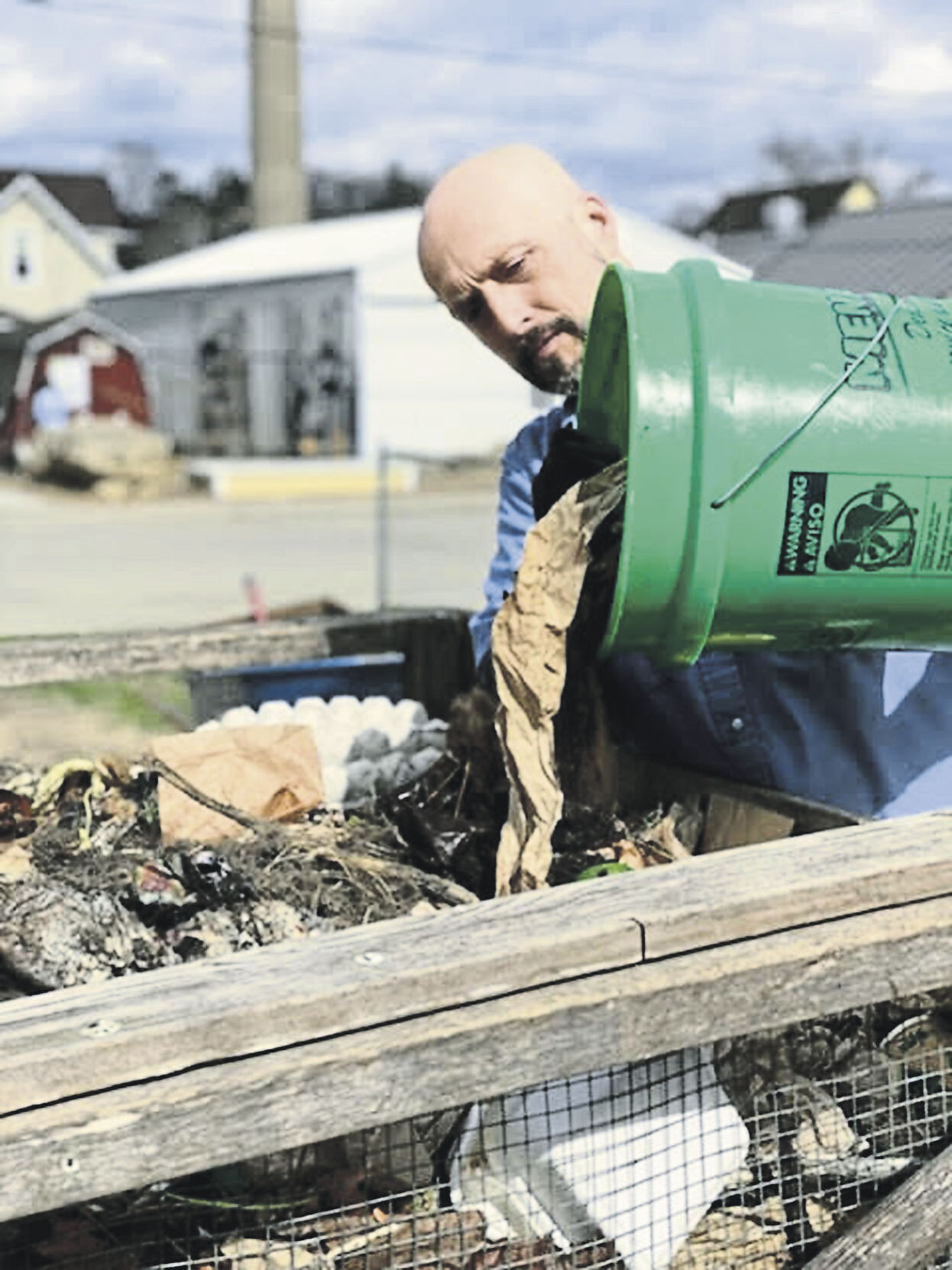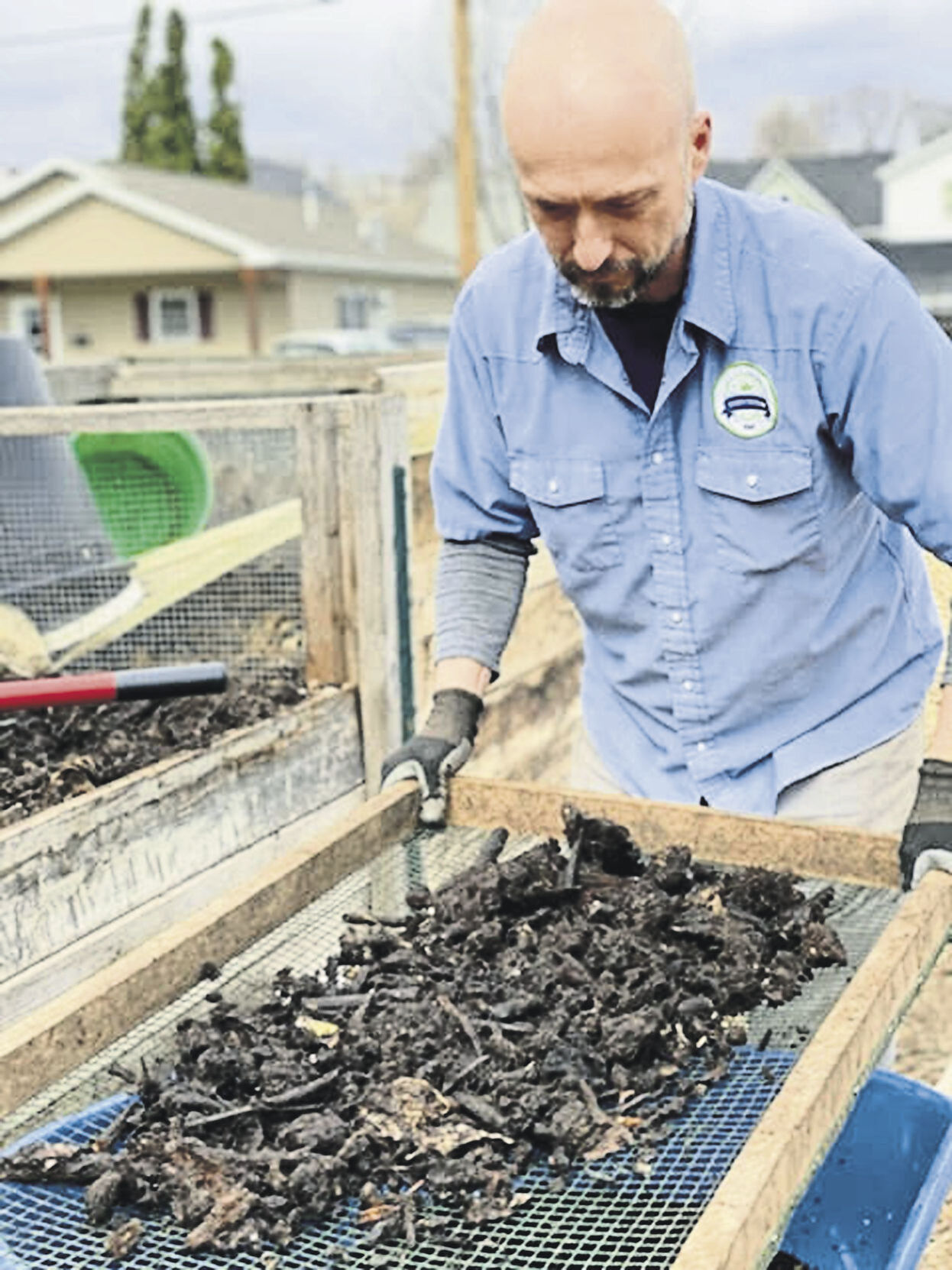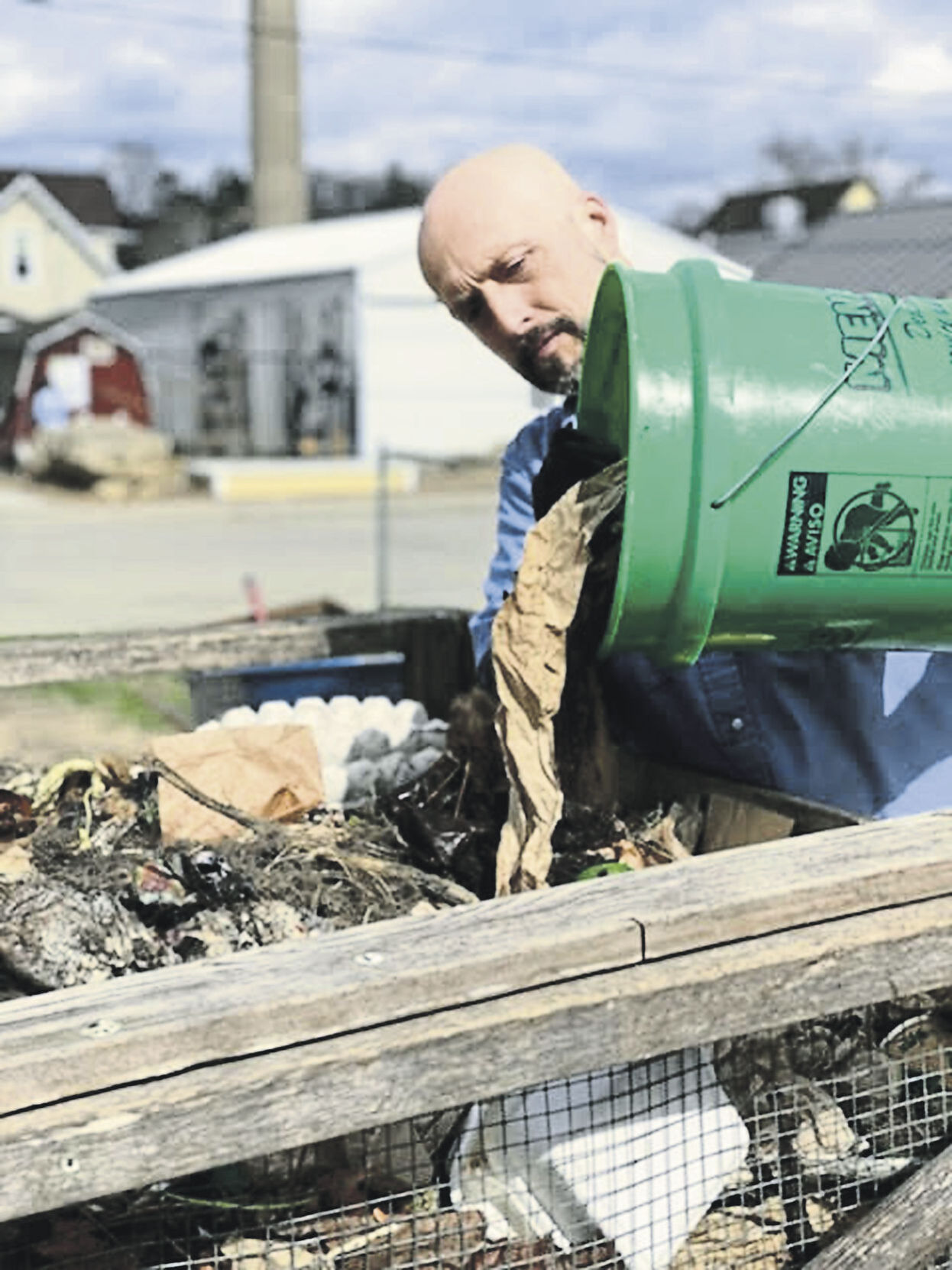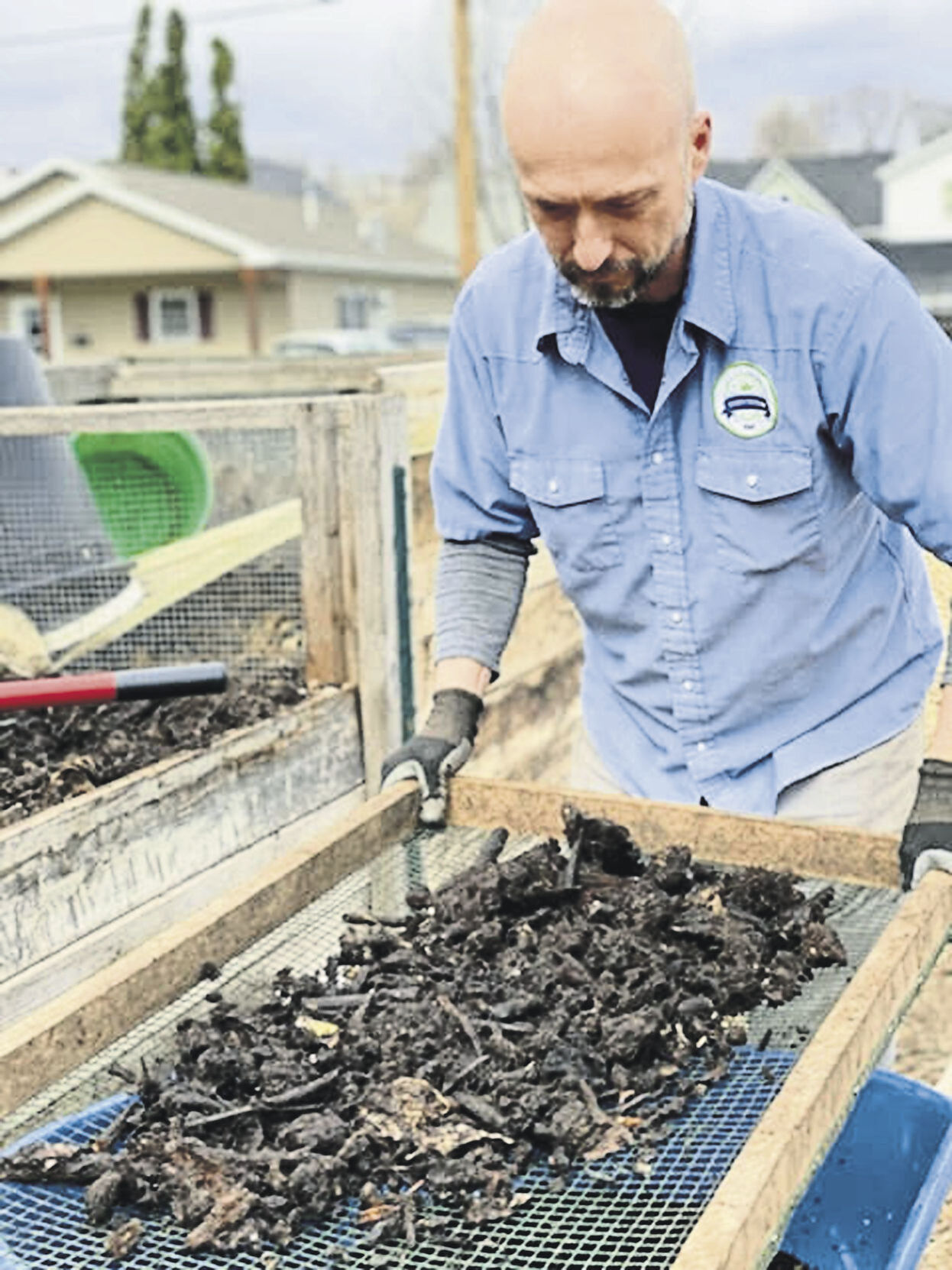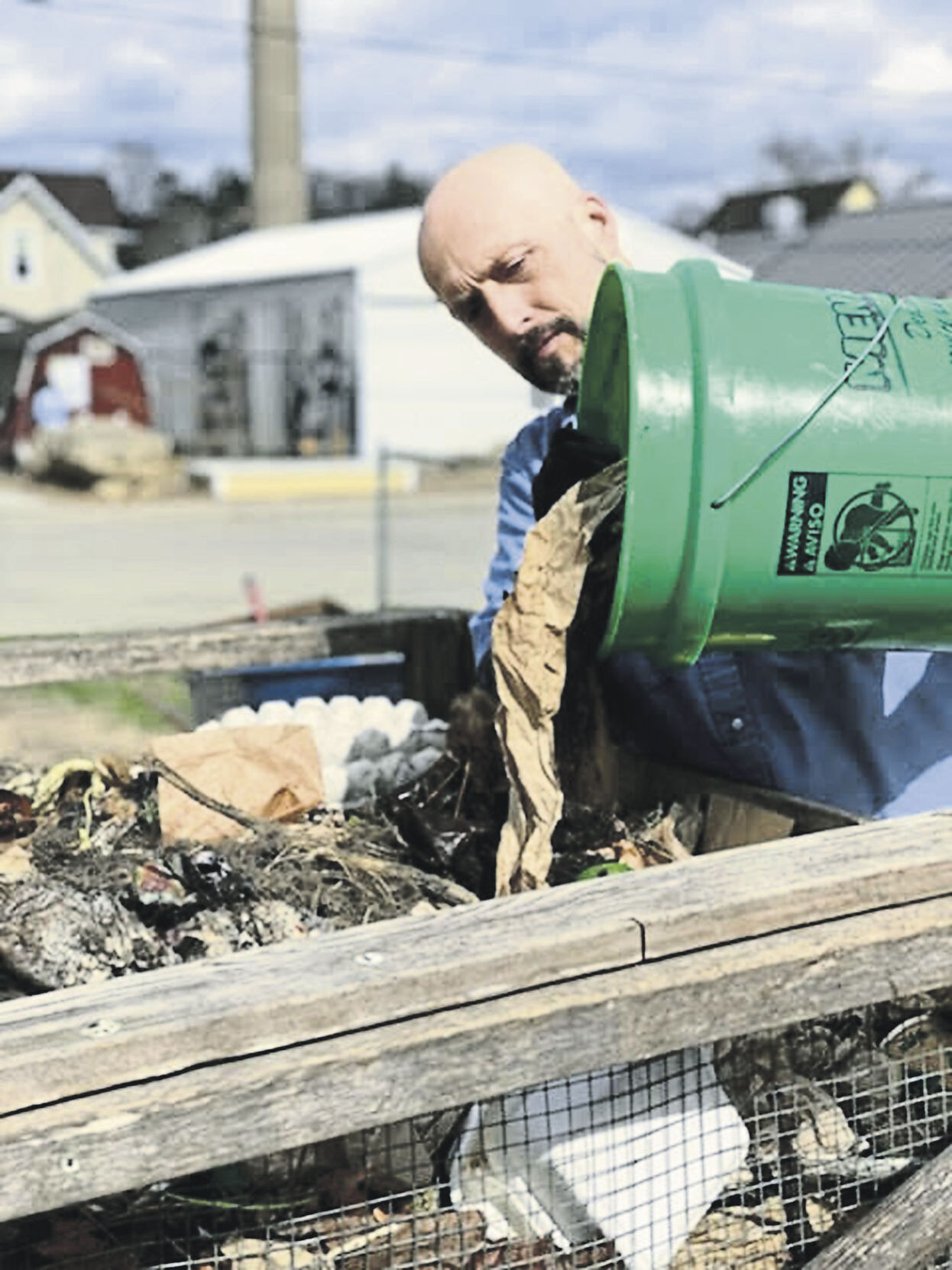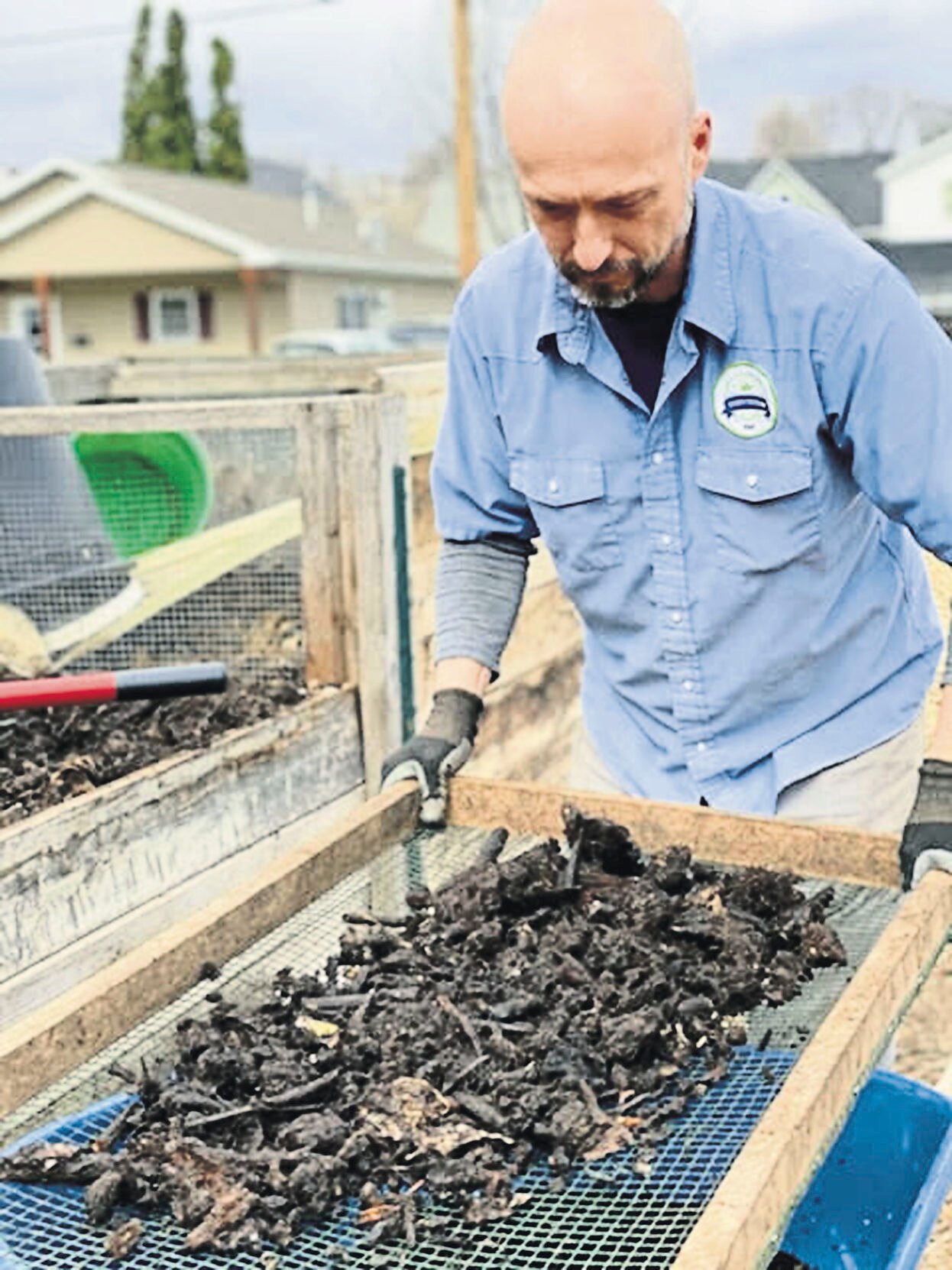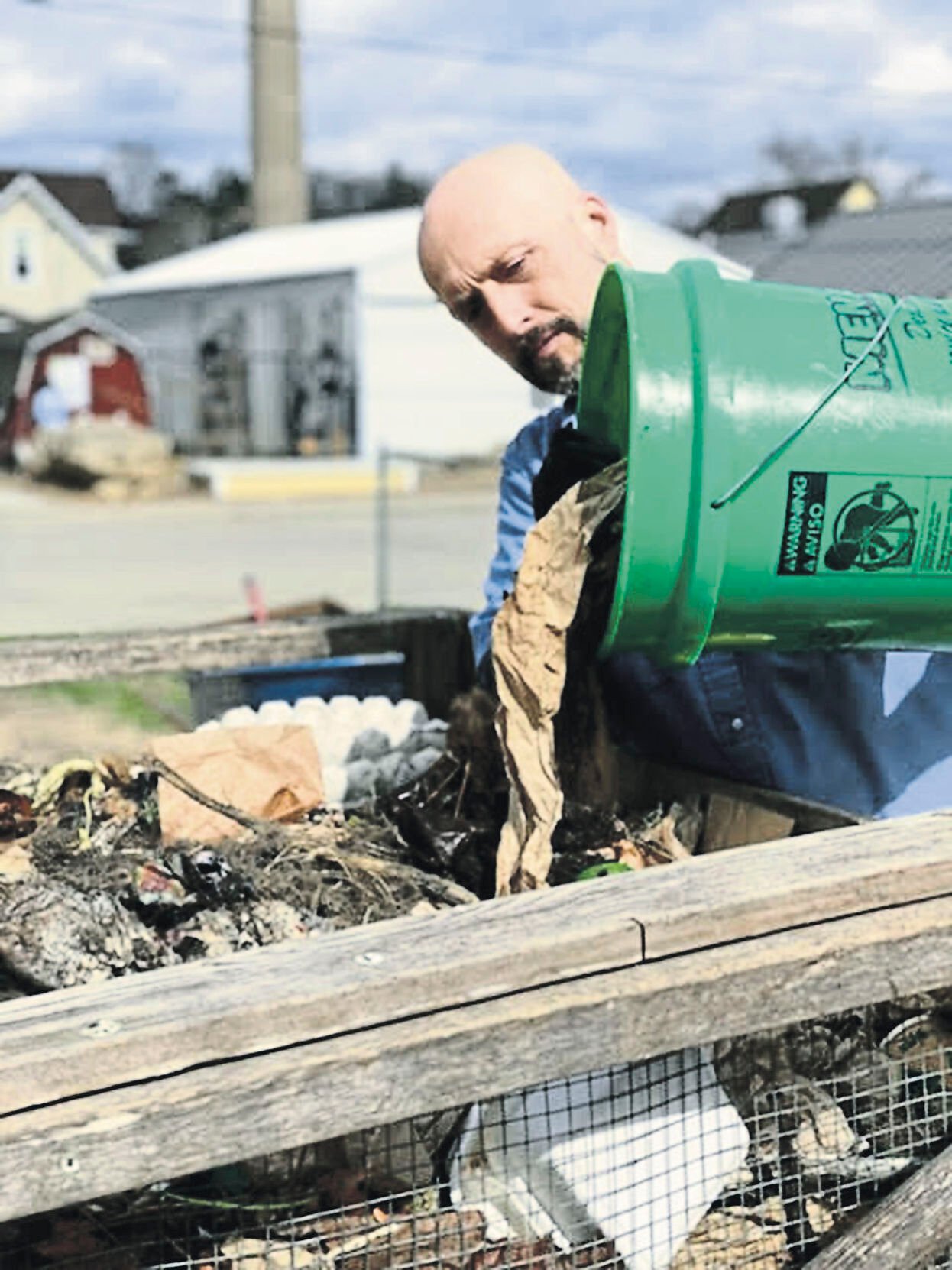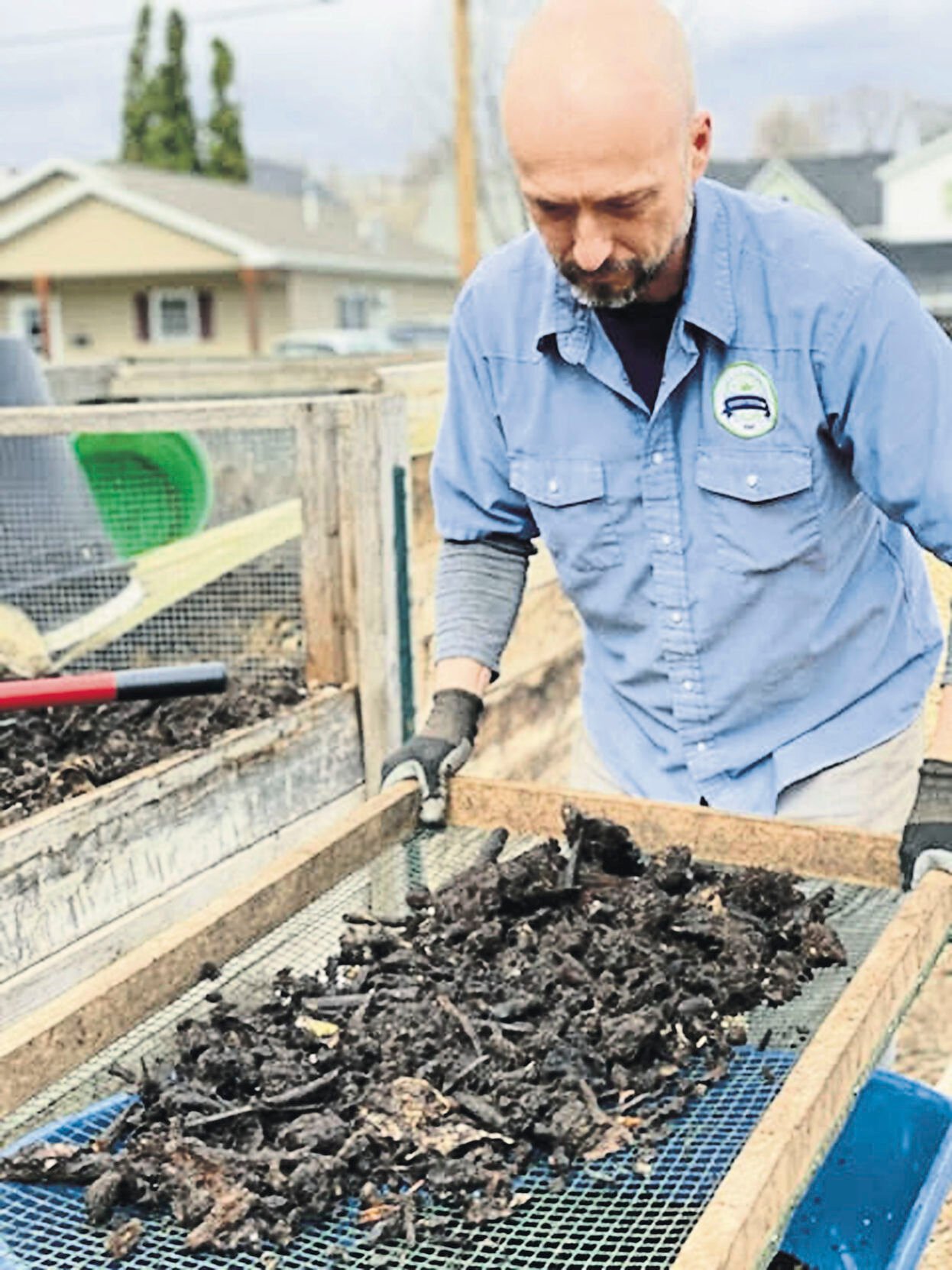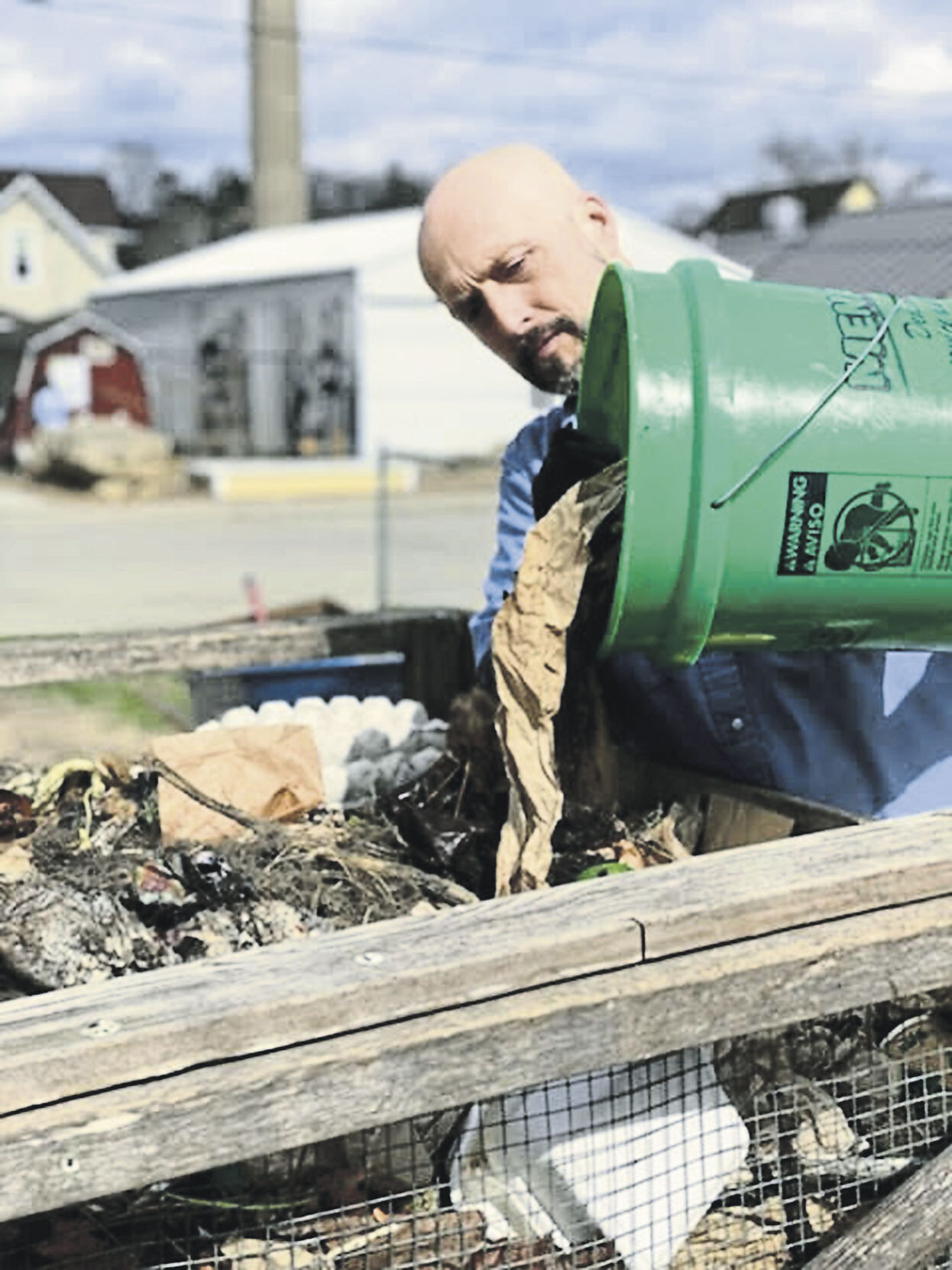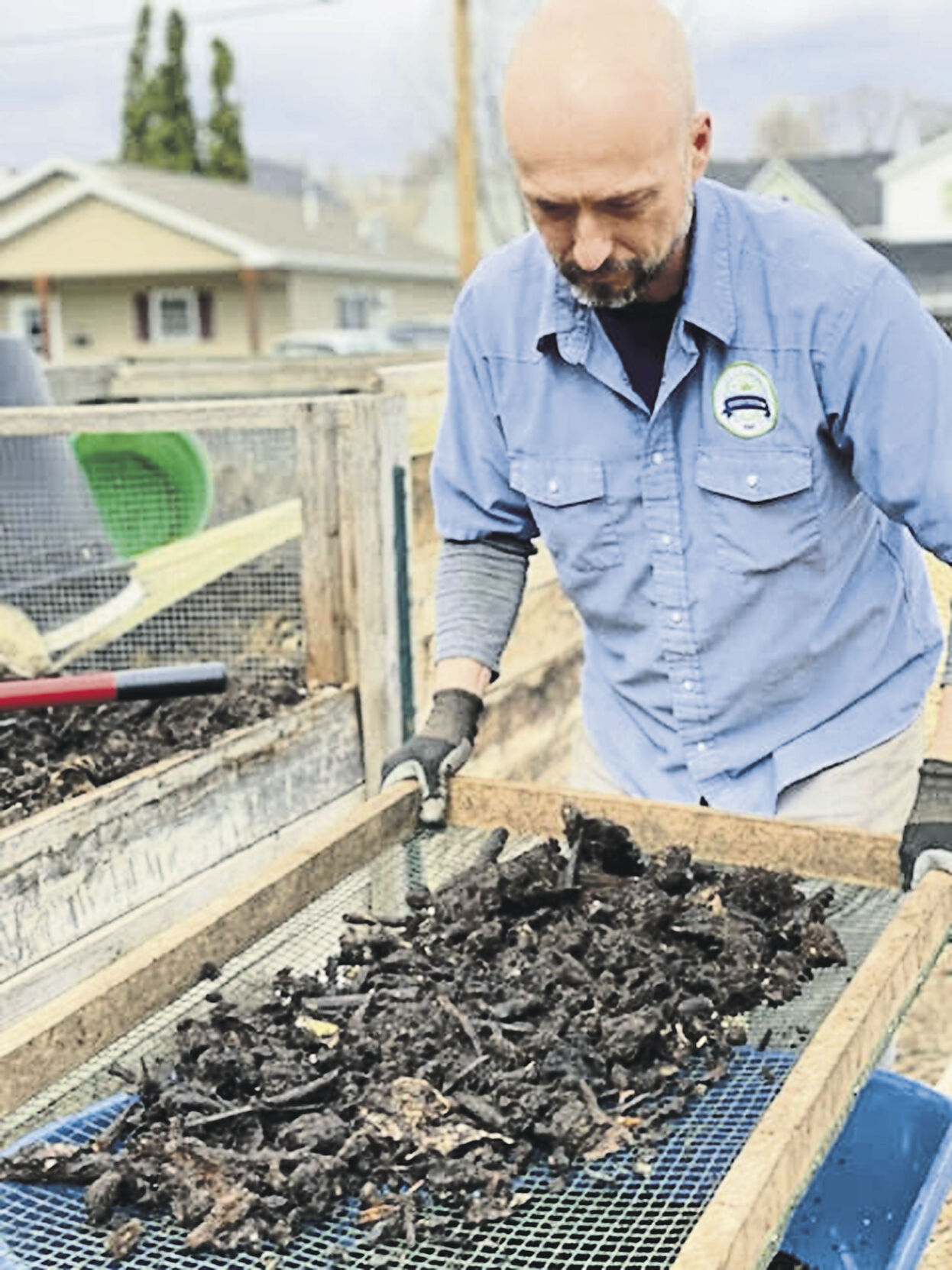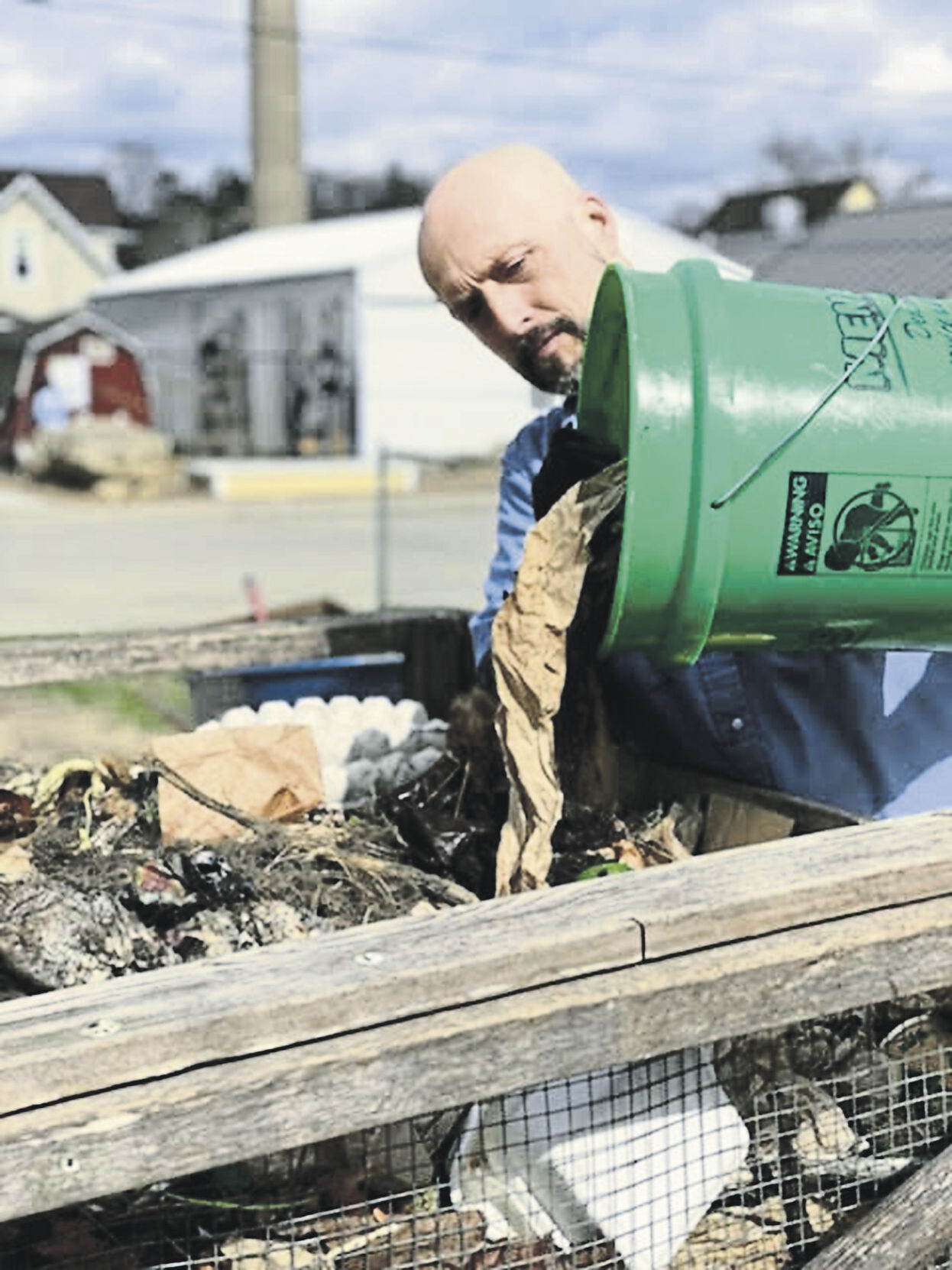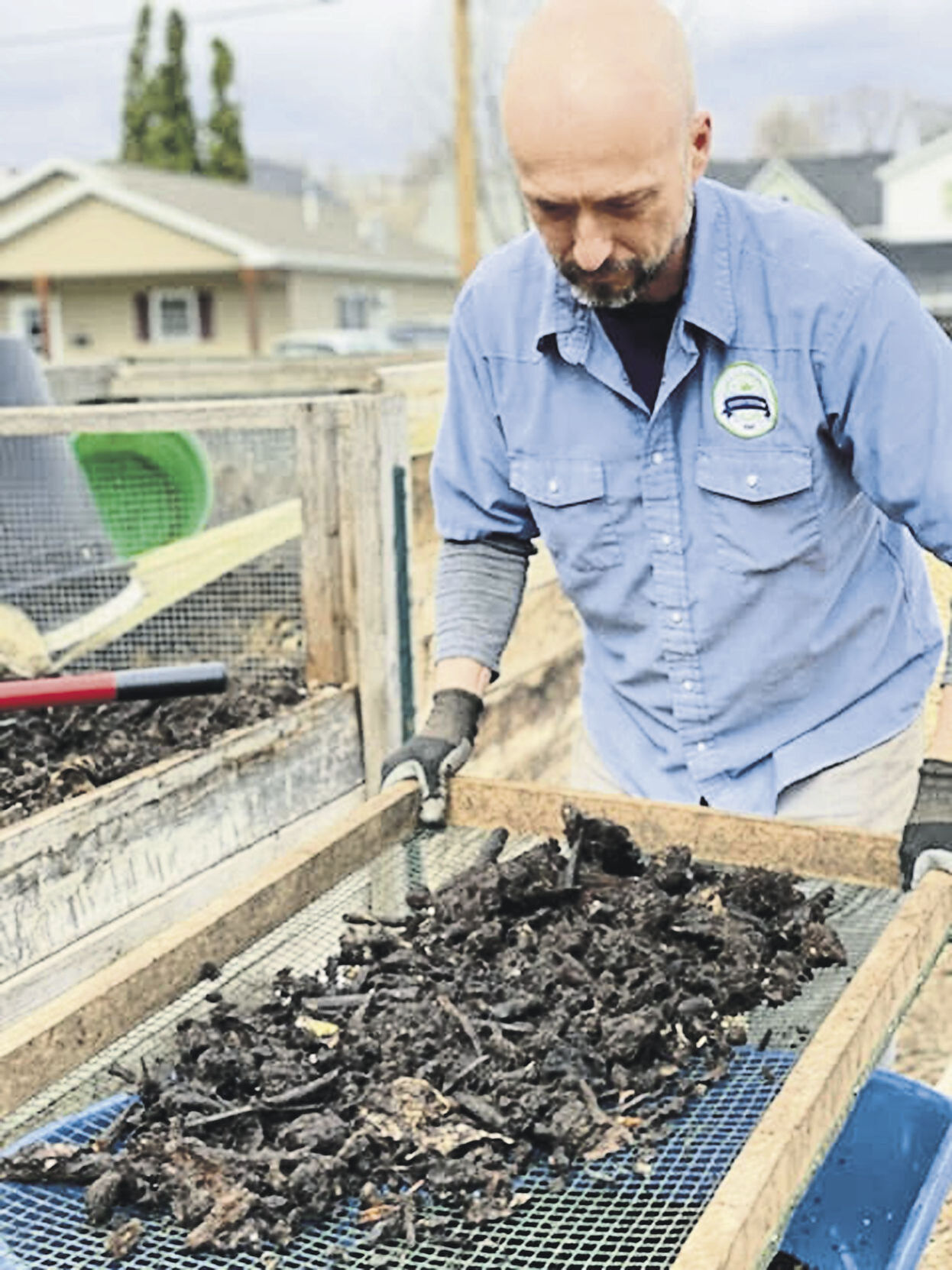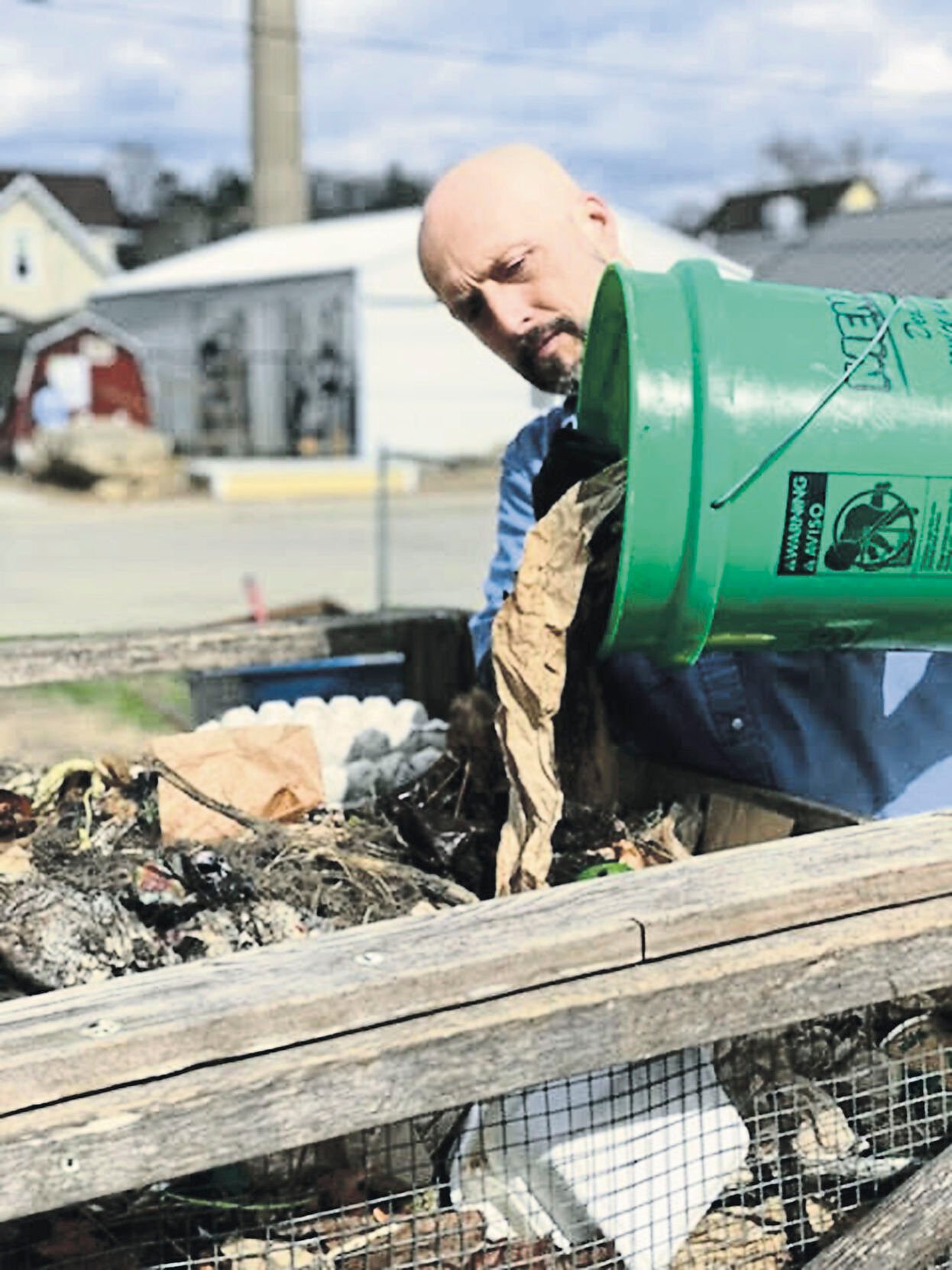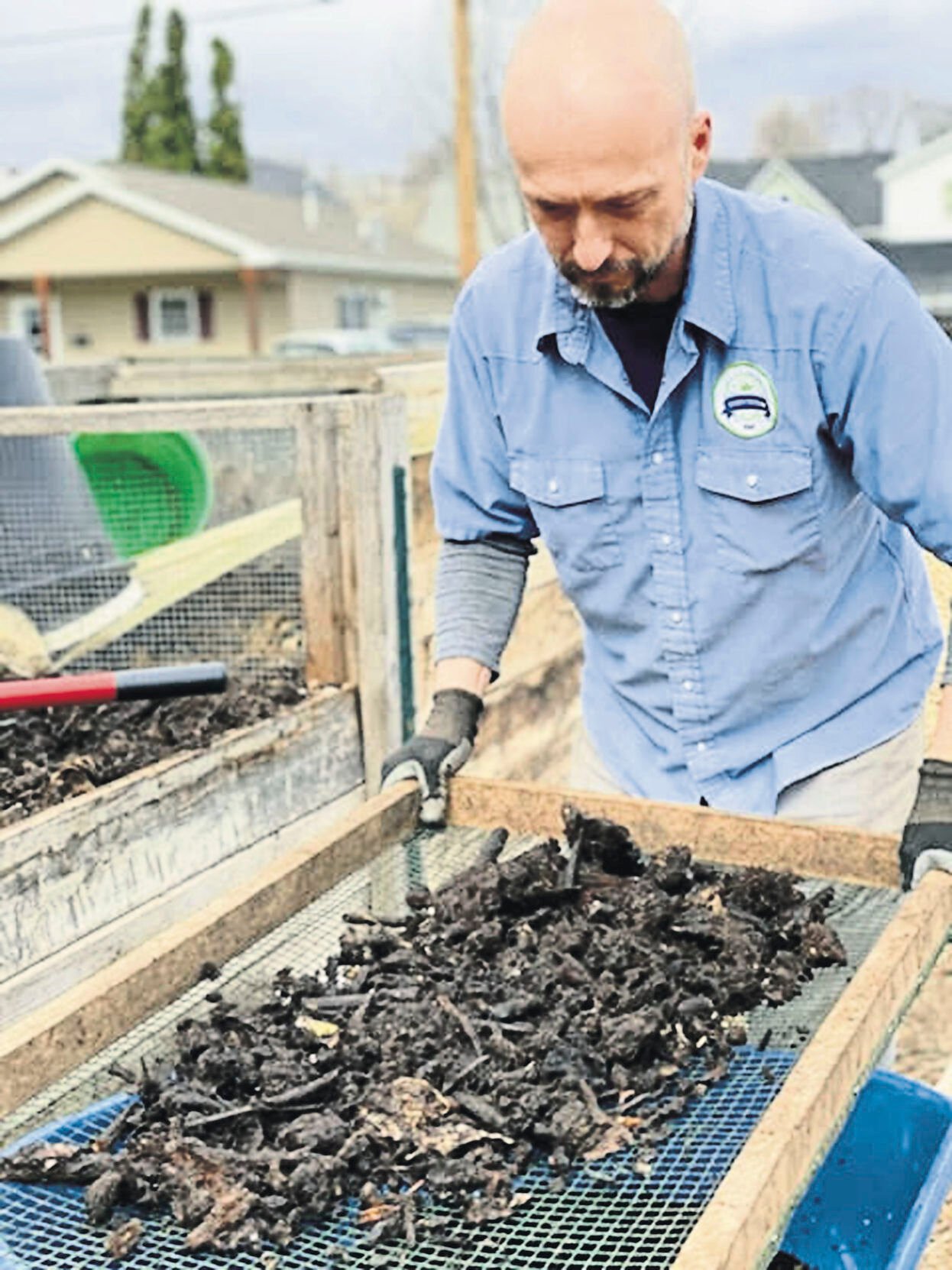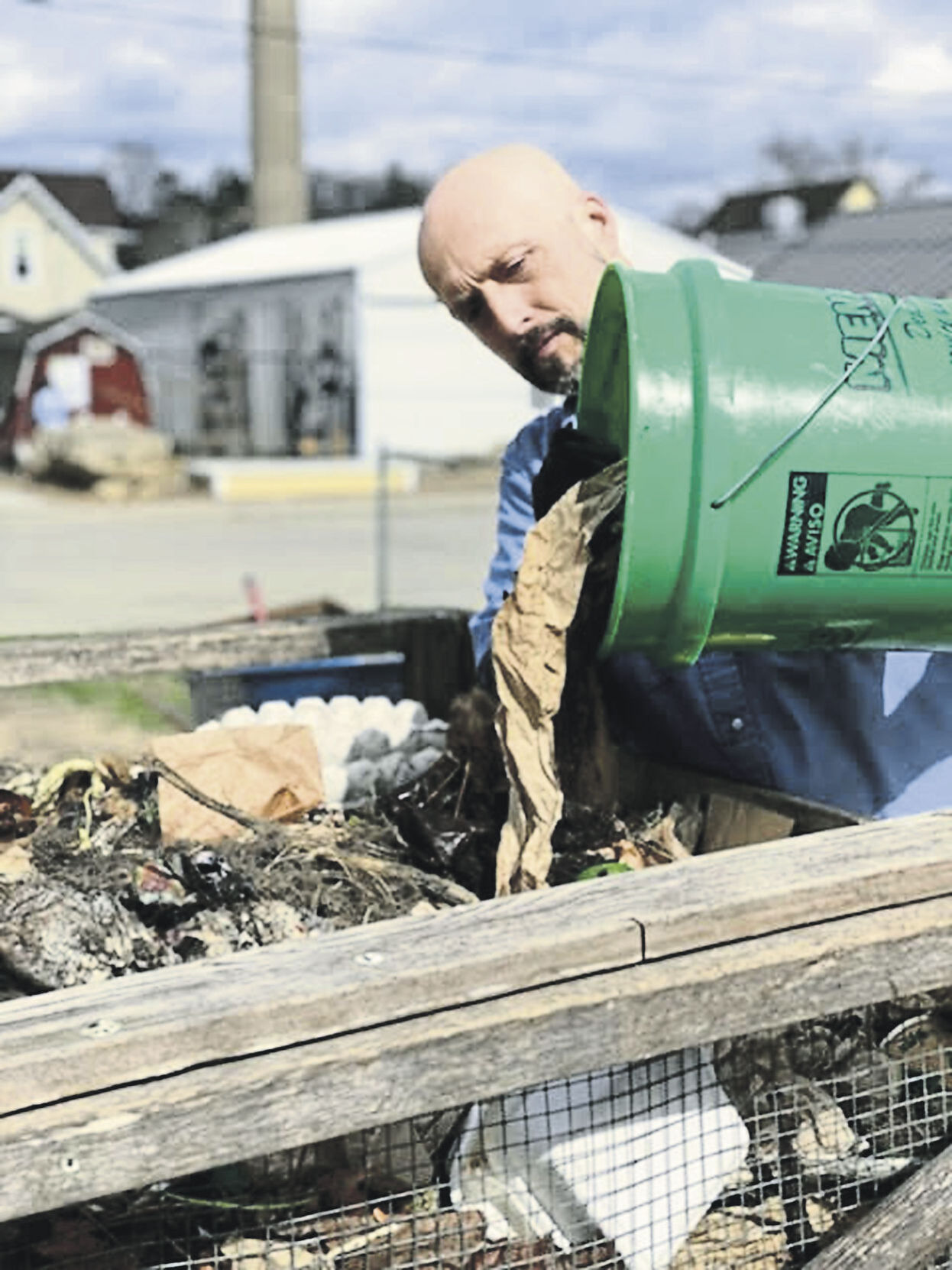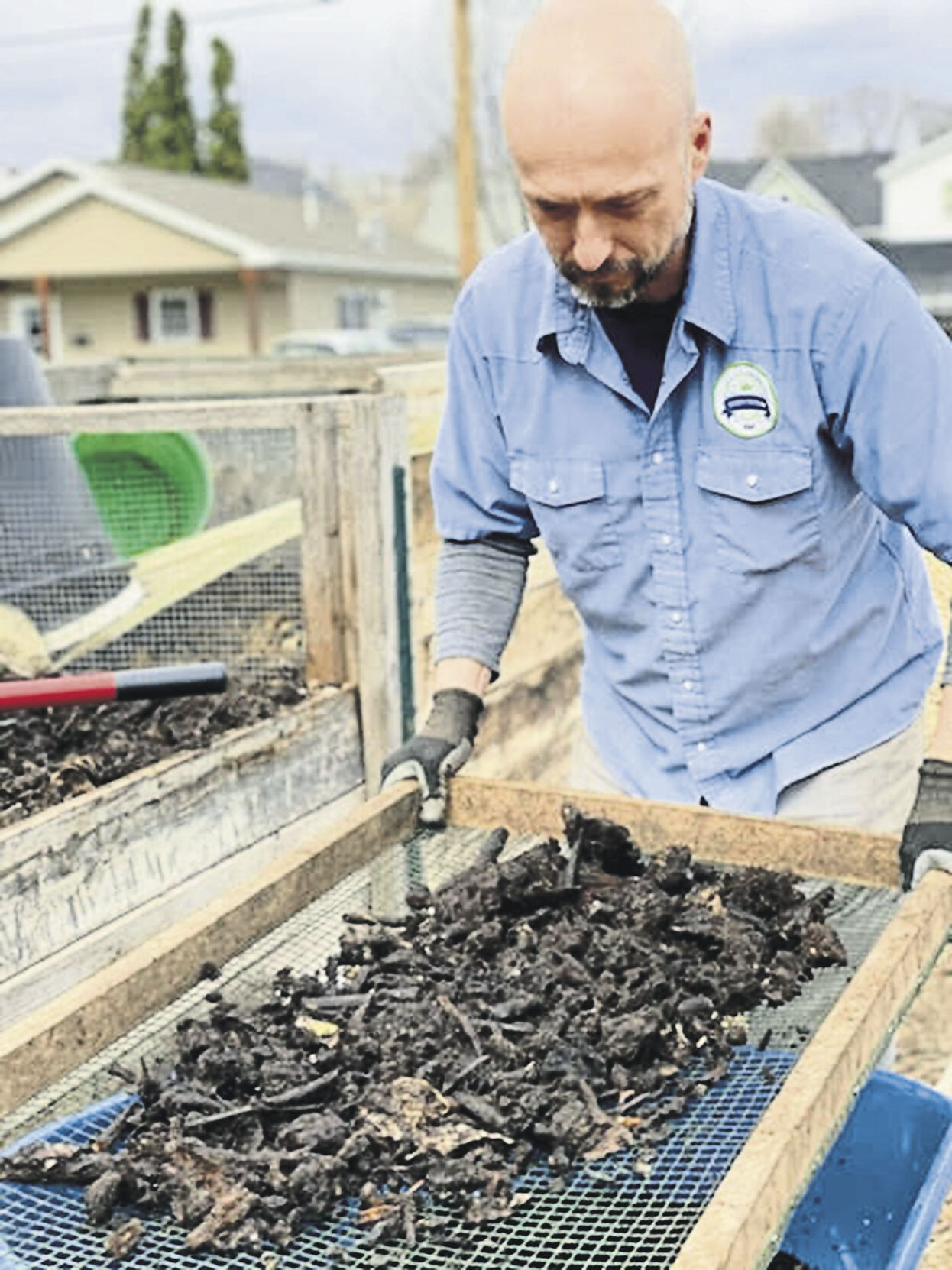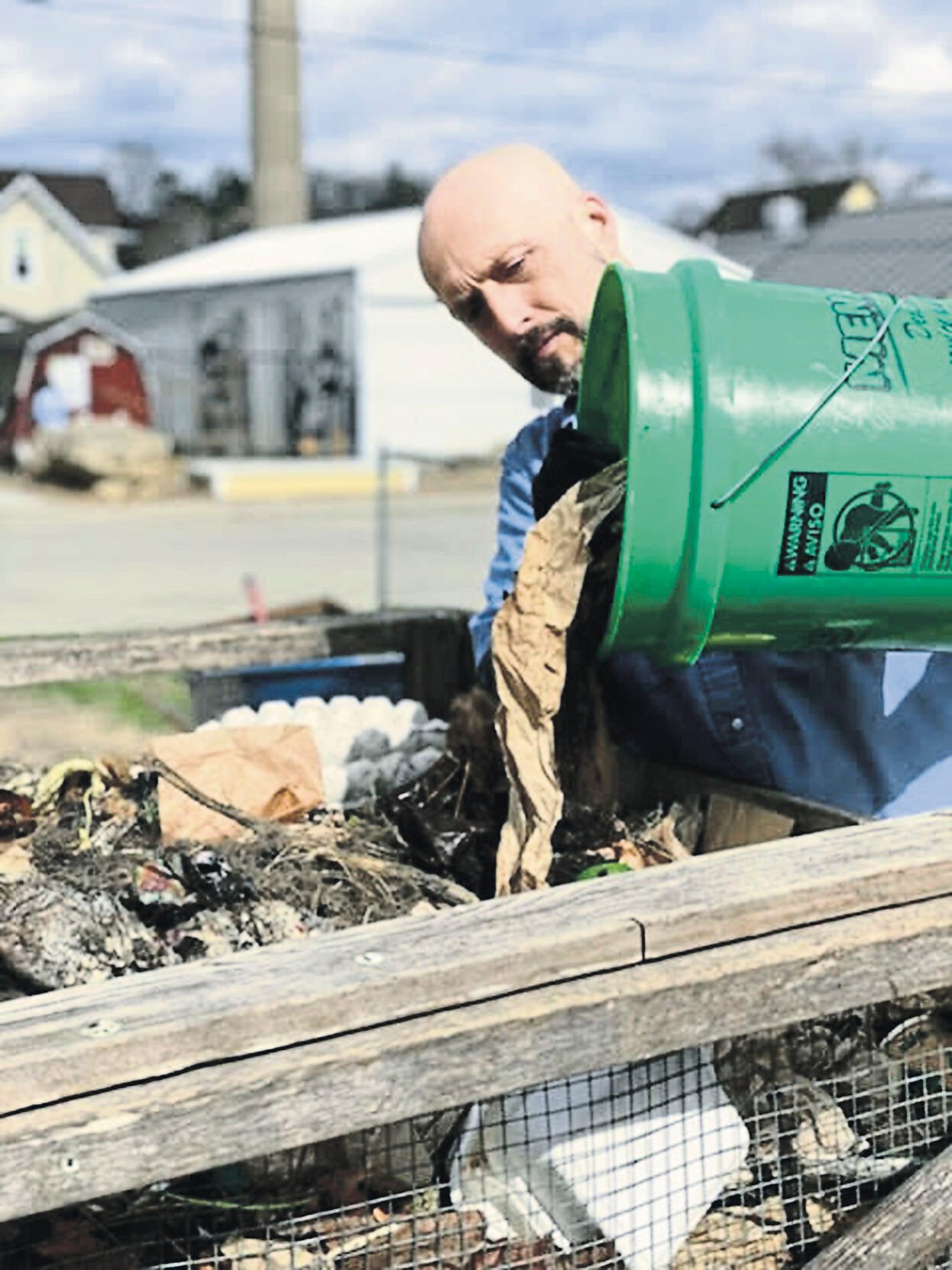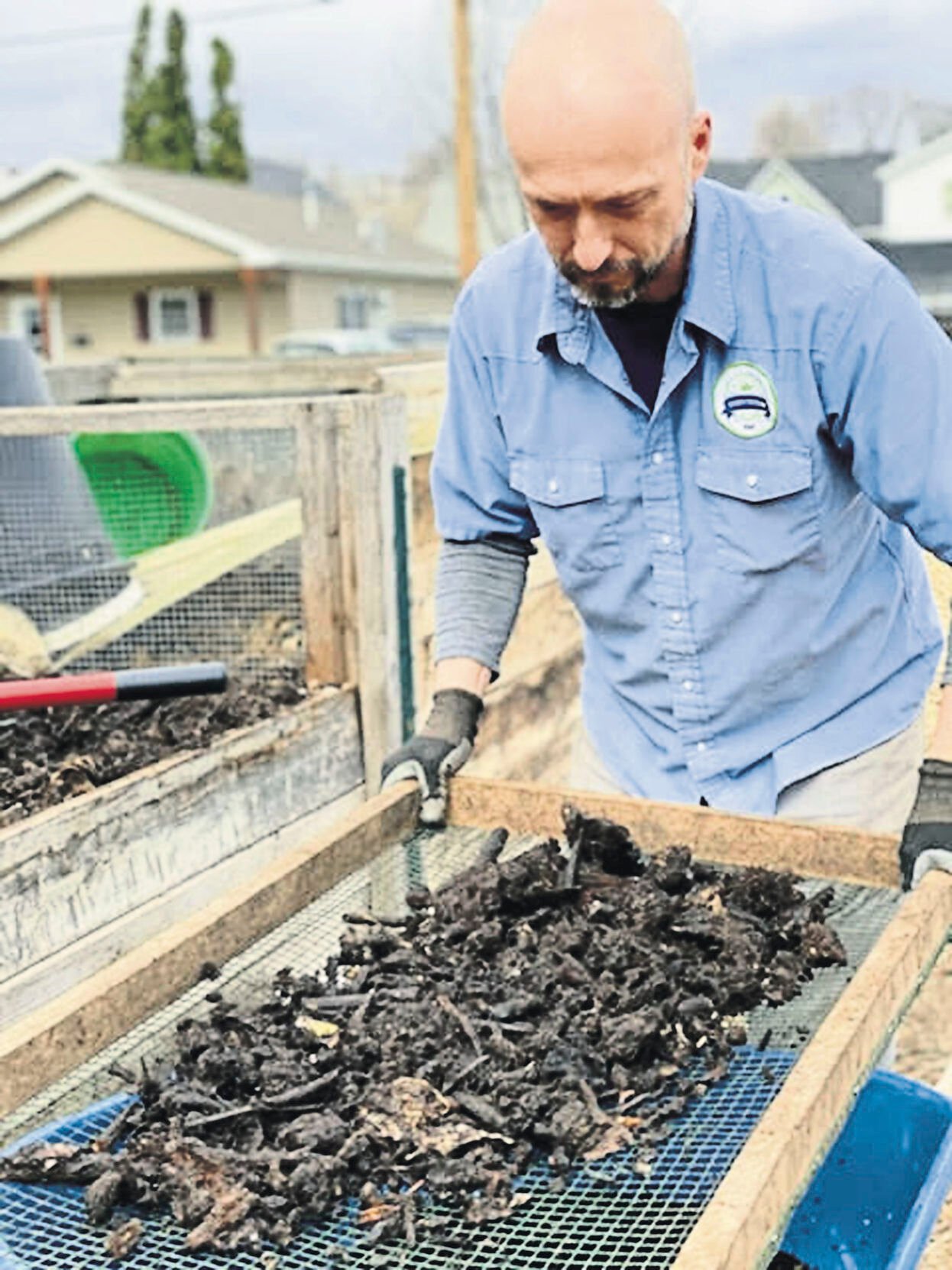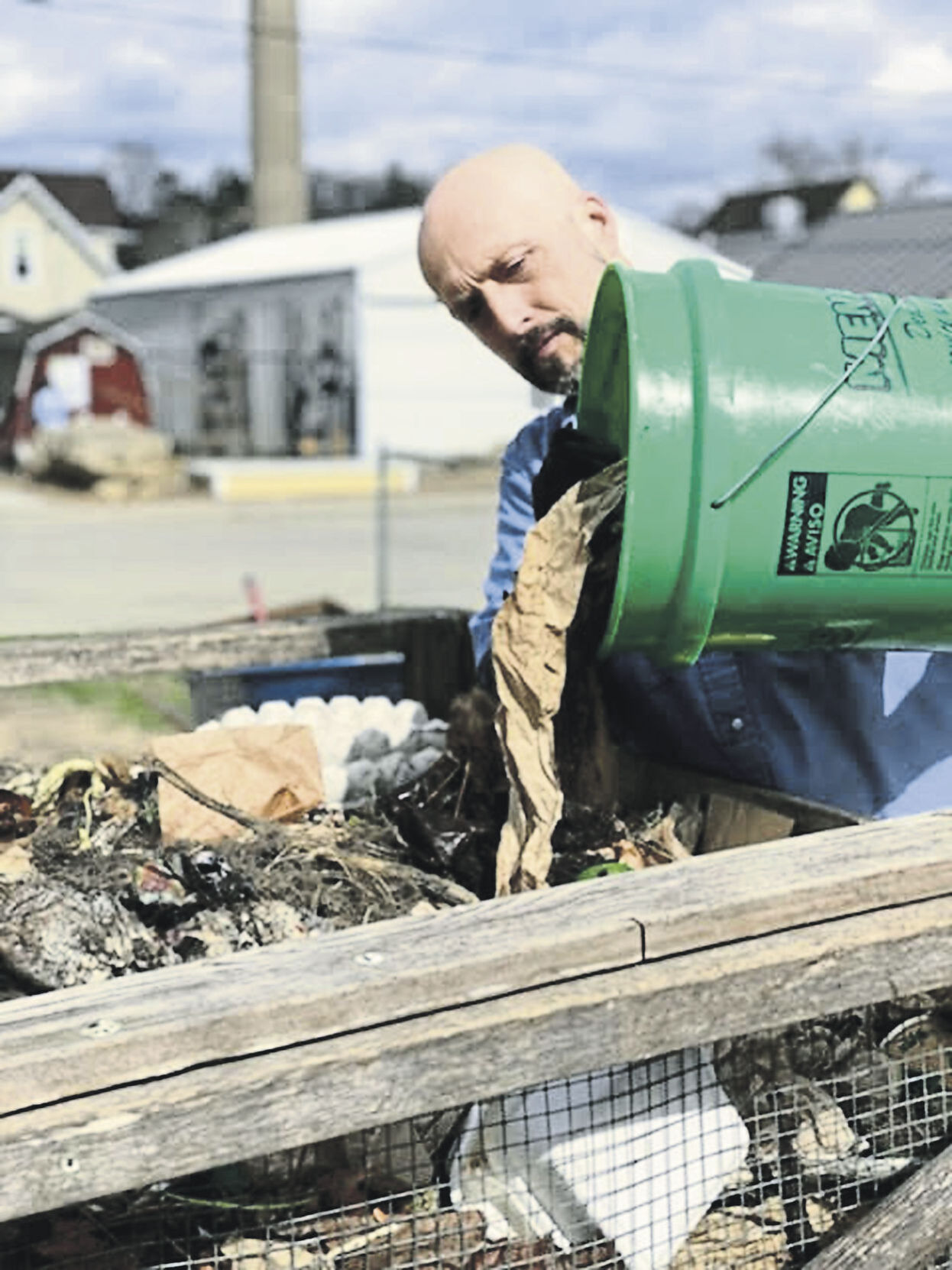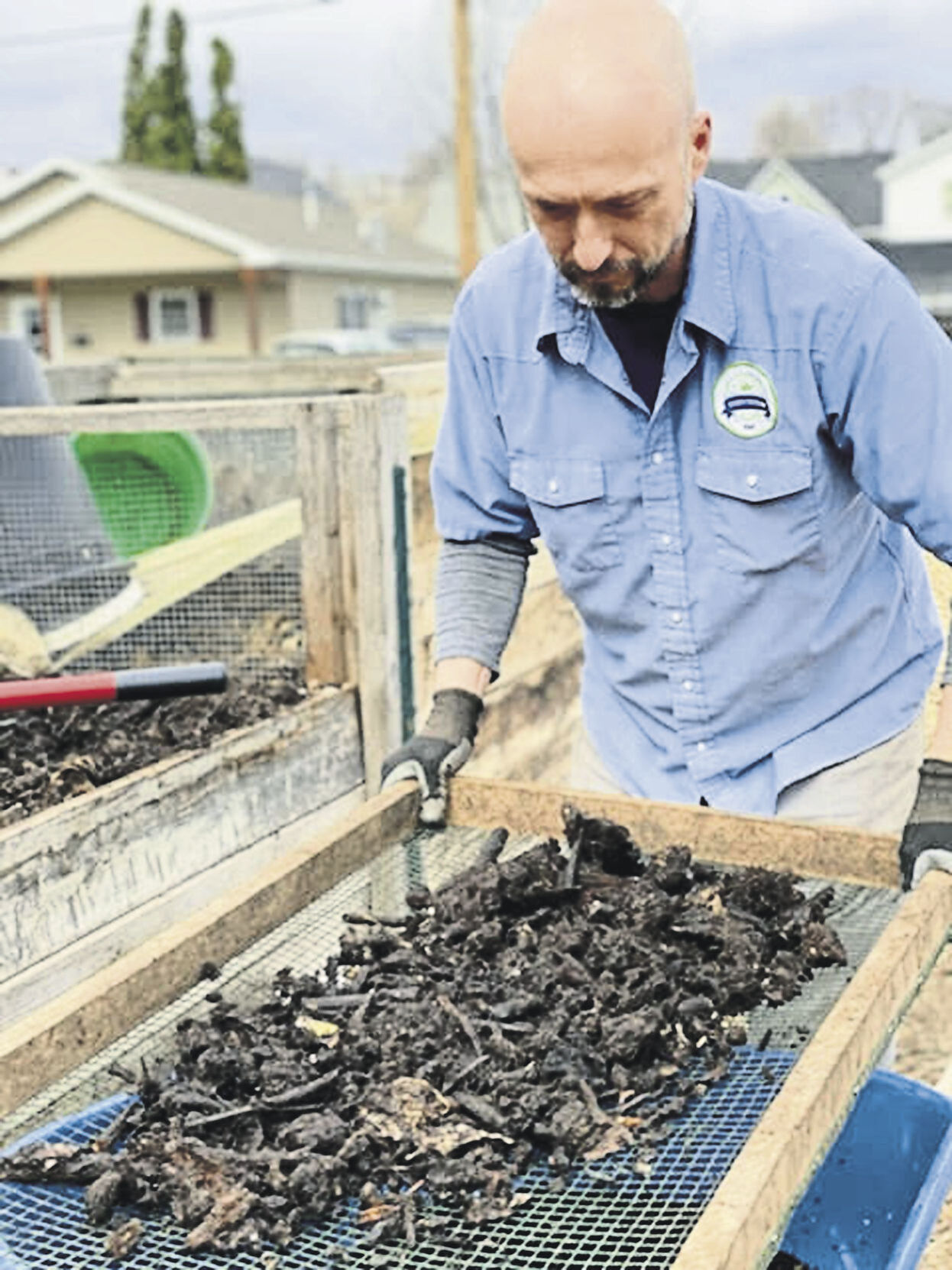You might have heard the word compost, but what is it exactly?
Compost is organic waste that breaks down in time into a nutrient rich soil. This “gold” for your garden will provide nutrients for anything you might be growing and will save you money in the long run by improving the structure of your soil, balancing pH and adding organic material to the earth, providing nutrients for microorganisms that live in your backyard.
“Composting is basically decomposing a lot of our organic materials into a form that is more readily used by plants to provide fertilizer and nutrition,” said Ray Kruse, food systems programs coordinator at Iowa State University Extension. “Really, it doesn’t take anything other than the materials you’re going to be putting into your compost.”
AJ Shultz, farm manager at Convivium Urban Farmstead in Dubuque, keeps multiple compost bins going at one time, including vermicomposting bins, which use worms.
“Decomposition happens around us all the time,” he said. “Imagine what the world would look like if it didn’t. Composting is just humans taking control of the decomposition process and then implementing it for their own benefit.”
Composting is easy. Maintaining it takes a bit of work but is worth the end result, said Tom Martin, a master gardener who lives in Dubuque.
“I’ve been composting for 40 years,” he said. “I’ve had really good luck with composting. It’s really not that difficult.”
Concerns about odor, either by you or your neighbors, shouldn’t be a worry.
“If you do it right, there won’t be an odor,” Martin said.
Shultz said vermicomposting can be a bit more difficult, but that shouldn’t discourage anyone who wants to try it.
“Worm castings are what is different in vermicomposting,” he said. “And that’s simply worm poop. But the kicker is that that tiny particle contains an ionic charge, so when you add it to your soil, it holds the nutrients in the soil, which is better for your plants.”
Shultz said unlike a regular compost pile or bin, vermicomposting requires you to bring your worms inside during colder weather.
“You don’t want them to freeze,” he said.
Kruse said trial and error usually are the key to success.
“The primary thing to do is experience it,” he said. “Don’t get frustrated with your first pile. It’s all a learning process. You get better with practice.”
Kruse, Shultz and Martin also offered these tips for creating a simple compost pile in your backyard:
• Use 25 parts of “browns,” which are high in carbon, (small twigs, newspaper, wood shavings, napkins, animal bedding, grass clippings) to one part of “greens,” which are high in nitrogen (carrots, potatoes, apple cores and peels, egg shells). Adding too much nitrogen will lead to a rancid, smelly pile (and probably some neighbor complaints).
• Keep an eye on the moisture level. You want it to have the consistency of moist potting mix. You don’t want it sopping wet.
• Be sure to remove stickers from any food items before you throw them in your compost pile. It is not known how those break down in the environment or what they might introduce to the soil.
• If your compost pile is touching the ground, chances are you’ll have worms or nightcrawlers come up and eat that material. That’s not a bad thing, but keep an eye out for things that might be a detriment to your compost. Jumping worms, for instance, are bacteria eaters, and bacteria is what decomposes your pile. A compost pile or bin that has jumping worms won’t break down.
• Don’t throw fat trimmings, fatty oils, bones, milk, cheese or meat into your compost. It will decompose eventually, but it will not smell good and won’t be what you want. Aim for plant-based organic materials.
• You can invest in compost turners or multilevel bin systems, but it can be something as simple as a pile in your backyard surrounded by chicken wire. You also could build a compost bin. There are plans online.
• If you use the correct materials and everything goes right, you should have your first batch of nutrient-rich soil in two to four months.
For anyone who is interested in learning more about vermicomposting, Shultz will be leading a workshop at 9 a.m. Saturday, June 25, at Convivium Urban Farmstead, 2811 Jackson St. For more information, visit www.convivium-dbq.com or call 563-557-2900.
Michelle London writes for the Telegraph Herald.

